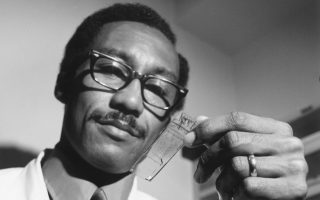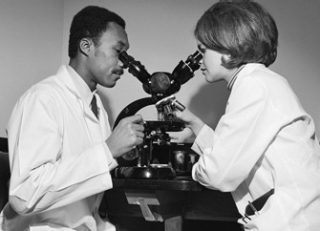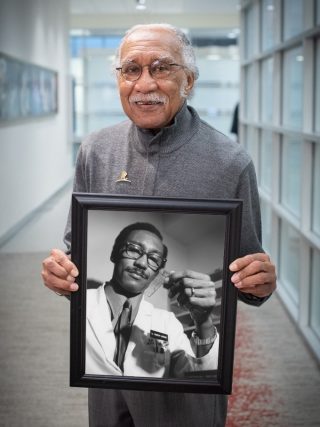
St. Jude to pay tribute to pioneering doctor who dedicated his life to treating sickle cell patients
Rudolph Jackson was one of the first Black doctors at St. Jude Children's Research Hospital when he arrived in Memphis in 1968.

February 01, 2022 • 3 min

St. Jude Children’s Research Hospital has announced it will pay tribute to Dr. Rudolph Jackson — a pioneering doctor and architect of the hospital’s sickle cell treatment program — with plans to display his name on campus.
Dr. Jackson, who died in August 2021, spent a lifetime working to enhance the education and treatment of children who suffered from the painful, debilitating and often deadly disease.
The naming opportunity, made possible through a special fundraising campaign in Dr. Jackson's honor, will remind patients, faculty and staff of the inspiring legacy of Dr. Jackson, who made the lifesaving mission of St. Jude his own.
“I had made a decision early on in my own training that if I did anything, I wanted to do something in a disease that I could make an impact,” Dr. Jackson said in an interview before he died. “I didn’t see many others working in the field. I would get letters from people across the country. ‘What is sickle cell disease? How do you treat it?' and all of that.
"And I realized then that we didn’t know very much about sickle cell disease in this country.”

Dr. Jackson was one of the first Black doctors to join St. Jude Children’s Research Hospital, joining the staff in 1968, just a few short years after the hospital opened in Memphis, Tenn. He moved 1,000 miles from Philadelphia for a low-paying position in the South.
Despite segregation across the United States, St. Jude founder Danny Thomas vowed his hospital would be different. Patients of all races would be admitted and treated in the same rooms. Black men and women would be hired not just as service employees, but as researchers, doctors and nurses.
When Dr. Jackson arrived, he began treating children for leukemia, solid tumors and sickle cell disease. But where Jackson left his most lasting mark was in the treatment of sickle cell disease. He had run a sickle cell program in Philadelphia, and at St. Jude, he went out into Memphis neighborhoods to strengthen the education and treatment of children and families affected it.
Dr. Jackson built the program to such a stature that in the early 1970s, the National Institutes of Health hired him to lead the federal government’s efforts to fight the disease.

Today, St. Jude has one of the largest pediatric sickle cell disease treatment programs in the United States, with more than 900 patients. St. Jude conducts translational research and provides leadership to further research, training, and education efforts into the disease.
In the early 1980s, a St. Jude patient was the first in the world to be cured of sickle cell disease with a bone marrow transplant. While bone marrow transplants aren’t recommended for the majority of patients, St. Jude is still paving the way in treatment and working toward a cure.
Kimberley Marter, Dr. Jackson’s daughter, said in an interview with St. Jude that her family is incredibly proud of her father’s legacy.
“That was my father’s mission — was to go and serve, and especially for children. And minister and provide the best medical care he could for children of all races and creeds. And he just had that calling. He went to St. Jude and started a tremendous program there.”
A gift in Dr. Jackson's memory will honor his innovative work at St. Jude Children's Research Hospital and enable researchers and doctors to continue to provide lifesaving treatment and care. For more information, contact Emmanuel.Spence@stjude.org.



